Radioactive iodine is a procedure that results in the intentional destruction of your thyroid gland.
This procedure is often used to treat serious medical conditions such as hyperthyroidism and thyroid cancer.
But is this procedure without side effects?
Learn more about radioactive iodine including what it is used for, the side effects to watch out for, why it increases your risk of weight gain, and more in this guide:
Radioactive Iodine Basics & Is RAI Safe?
What exactly is radioactive iodine?
Radioactive iodine (often abbreviated RAI) is a therapy used to treat hyperthyroidism and thyroid cancer.
In this procedure, you are intentionally given Iodide, I-131, which emits radiation.
Your body then takes up this radioactive iodine into your thyroid gland where the radiation proceeds to destroy thyroid gland tissue.
RAI works because it takes advantage of certain aspects of normal physiology.
You probably already know that iodine (not the radiated version) is required for optimal thyroid hormone production.
Each thyroid hormone has a specific amount of iodide in it (2, 3, or 4 moieties depending on the type of thyroid hormone).
In addition, your thyroid gland stores up to 15-20 grams of iodine as a reservoir for thyroid hormone production (1) (stores that it can draw upon when necessary).
RAI takes advantage of this storage capacity of your thyroid gland.
So when you take RAI your thyroid will take up and store the radiated iodine which will cause local damage as it emits radiation and disrupts cellular function.
But why on earth would you WANT to destroy thyroid gland tissue? Surely there must be a better way.
RAI is often used to treat medical conditions which result in HYPERTHYROIDISM or the production of too much thyroid hormone from the thyroid gland.
Conditions such as Graves’ disease or Toxic multinodular goiter may result in excessive production of thyroid hormone.
This production can be stopped or blunted by either taking medication (anti-thyroid medication), removing the thyroid gland (thyroidectomy), or by completely destroying it with radioactive iodine.
In this way, RAI is a potent therapy that results in intentional damage to thyroid gland tissue.
As you might suspect, destroying your gland with radioactive iodine is associated with some side effects and is not without risk (but more on that later).
It may sound like a barbaric treatment, but it has been around since the 1940s and is often used to treat hyperthyroidism and thyroid cancer.
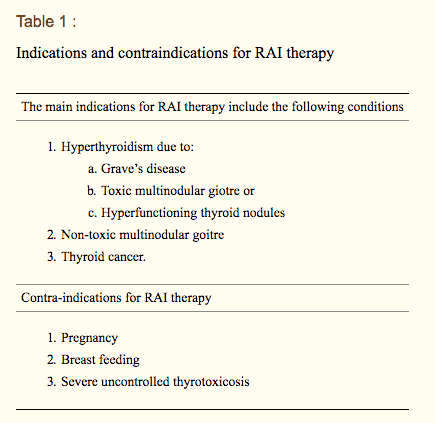
It is considered a “definitive” treatment for hyperthyroidism, much like thyroidectomy.
Is RAI safe to get?
For the most part, if done correctly and if proper precautions are taken after the procedure, yes it is safe.
There are some groups of people who should NOT use RAI, however, and this group includes pregnant women, women who are breastfeeding, and patients who are unstable or in a thyroid storm.
Now that you have a basic understanding of what RAI is and how it works, we can talk about how it is used for individual conditions.
Treating Hyperthyroidism with RAI
Perhaps one of the most common uses of RAI is as a therapy to treat hyperthyroidism.
As we discussed, RAI results in complete and irreversible damage to the thyroid gland.
Because of this, you should consider all available options and therapies available to you before you undergo this procedure.
In the case of hyperthyroidism (caused by Graves’ disease, toxic multinodular goiter, or any other cause), RAI is considered to be a “definitive” therapy.
It’s definitive because after the procedure your thyroid gland will no longer function optimally and your hyperthyroidism will have been treated.
You can compare this to temporary hyperthyroid treatments such as thyroid-blocking medication.
Thyroid-blocking medication is NOT definitive because once you stop taking the medication your condition will most likely come back.
Is RAI effective at treating hyperthyroidism?
The answer is yes.
Up to 60-80% of patients with hyperthyroidism have Graves’ disease which is an autoimmune disease.
Patients with this condition often experience excessive doses of thyroid hormone as antibodies stimulate the thyroid gland.
Because of this, it is considered a safe alternative to complete thyroid removal (thyroidectomy) for hyperthyroidism.
It’s important to realize that RAI is not the only option available for the treatment of hyperthyroidism.
Before you undergo RAI make sure that you have evaluated all options available to you.
There are 3 primary ways to treat hyperthyroidism:
#1. Thyroid-blocking medications(usually temporary)
#2. RAI(more definitive than medication)
#3. Thyroidectomy(more definitive than medication)
You can learn more about these therapies in the links provided above.
Treating Thyroid Cancer with RAI
In addition to being used to treat hyperthyroidism RAI can also be used to treat thyroid cancer.
But it is often used in a different way which is worth discussing.
Thyroid cancer represents a different medical condition, when compared to hyperthyroidism, and requires slightly different treatment.
The baseline treatment recommended for thyroid cancer is thyroidectomy or complete thyroid removal.
This procedure allows for nearly the complete removal of the thyroid gland and usually 99+% of thyroid cancer cells.
But what you may not realize is that it is nearly impossible to remove 100% of the thyroid gland tissue even with thyroidectomy.
This leaves a small percentage of thyroid gland tissue in the body.
This remaining thyroid gland tissue slightly increases the risk of recurrence of thyroid cancer (3).
In addition, it is possible that thyroid cancer cells may exist outside of the thyroid gland during the operation (from metastatic disease).
Because of these two main reasons, RAI is often used as an additional therapy combined with thyroidectomy to completely eliminate thyroid gland tissue in the body (4).
This combination of therapy reduces the risk of thyroid cancer recurrence and increases the likelihood that you will kill any thyroid gland tissue or cancer cells that may be outside of the thyroid gland.
Is there a problem with this approach?
Remember that every procedure comes with risks and potential side effects.
These side effects must be weighed against the potential positive outcome of the therapy.
Because of this, not EVERY patient with thyroid cancer will undergo both procedures.
In fact, current recommendations state that the addition of RAI to thyroidectomy can be determined by the physician and based on the patient.
Before you get RAI in addition to thyroidectomy, these two factors should be considered:
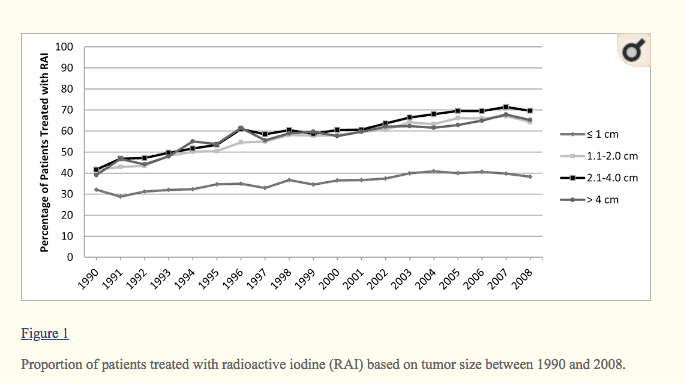
#1. Thyroid cancer has a low risk of recurrence after thyroidectomy.
Even without RAI, the risk of thyroid cancer recurrence is very low (5), so adding on the RAI may not further reduce that risk in every patient.
#2. There are always health risks associated with RAI.
RAI is a procedure in which radioactive iodine is given with the intent to destroy thyroid gland tissue.
There are side effects associated with this procedure (discussed below).
Around 50% of patients with thyroid cancer get both thyroidectomy and RAI (6).
This leaves another 50% who only get thyroidectomy.
Each individual patient with thyroid cancer should weigh the risks vs the benefits before adding RAI to their treatment plan.
Your Doctor should be able to help you determine if, in your case, RAI makes sense.
Side Effects of RAI & What to Expect After Therapy
While RAI is considered a “safe” procedure, it is not without risks (7).
Remember:
When you take RAI you are intentionally placing radioactive substances inside your body.
Yes, it is true that this radioactivity is mostly confined to your thyroid gland, but there is still a small risk that you can pass some of this radiation onto others.
Because of this, certain precautions must be taken to avoid this transfer to others.
But beyond the side effects, what should you expect after treatment?

Remember that the goal of RAI is to completely destroy your thyroid gland.
This destruction of thyroid gland tissue will permanently alter thyroid hormone status in your body.
After the procedure, you will be reliant upon thyroid medication for the rest of your life.
You are effectively turning yourself into a hypothyroid patient, which can be confusing for many patients, especially those who are undergoing RAI for the treatment of hyperthyroidism.
Many of the side effects associated with RAI have to do with the hypothyroid state which occurs AFTER the procedure and no side effects are directly associated with the procedure itself.
Weight Gain After RAI
It is well known that RAI poses a potentially serious threat to your current weight (8).
It has been reported (and shown) that the risk of becoming overweight and obese increases dramatically after radioactive iodine ablation therapy.
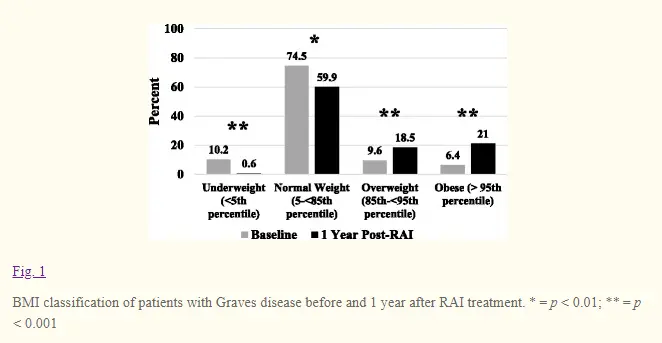
This risk increases anywhere from two-fold to three-fold compared to normal healthy euthyroid controls (those without thyroid damage).
It was previously thought that this weight gain was likely due to changes in metabolism and food intake after hyperthyroidism treatment, but the same effect is seen in those with normal thyroid status who undergo RAI (such as those with thyroid cancer).
Other theories suggest that the weight gain is the result of a hypothyroid state which may occur immediately after the procedure and before thyroid hormone levels are optimized with medication.
The exact cause of the weight gain is not well understood, but in my opinion, it is most likely related dosing of thyroid medication after the procedure.
Your thyroid is responsible for about 50-60% of your baseline metabolism (9).
Small changes to thyroid hormone may disrupt the normal regulation of your metabolism and may lead to weight gain.
It seems unlikely that physicians can perfectly balance how much thyroid hormone you need after your procedure with 1 pill taken once per day.
This weight gain is also seen post-thyroidectomy and with anti-thyroid medications, indicating that the weight gain is likely secondary to thyroid hormone levels and thyroid dosing.
You can learn more about this idea in this post.
It is important to know that not all patients who undergo RAI will experience dramatic weight gain.
Patients who go into the procedure overweight or obese are much more likely to experience weight gain after the procedure.
Side Effects Special to Men
RAI may pose a threat to fertility, especially in men.
This side effect is not necessarily a contra-indication to the procedure because banking your sperm prior to the procedure can bypass these negative effects.
Long-term infertility is typically not a problem unless multiple rounds of RAI are necessary (such as for metastatic cancer).
Before undergoing RAI make sure you consider this side effect and take the necessary precautions, such as banking sperm, if necessary.
Side Effects Special to Women
Specific to women, RAI does pose a serious risk to fetal development in pregnant women.
RAI is readily transferred across the placenta, which means it may seek out and destroy the thyroid gland of the developing baby.
Thyroid function is required for brain development and thyroid damage may result in mental retardation in the developing fetus.
RAI should also be avoided in women who are breastfeeding.
Reducing RAI Risk for Others + Precautions
Because RAI utilizes radioactivity, certain precautions must be taken after the procedure.
These precautions help to reduce exposure to radioactivity to loved ones or people who you live with.
Because of this risk physicians often make recommendations regarding avoiding sexual intercourse, avoiding contact with children, breastfeeding, avoiding sleeping next to people, and avoiding conception for days to months after the procedure.
Certain activities, such as sleeping next to someone, returning to work, preparing food for others, presence in public locations, traveling (air travel and car travel), sharing utensils with others, and sitting on a shared toilet only need to be avoided for up to 5-7 days.
While others, such as attempting conception, should be avoided for at least 6 months.
These precautions and recommendations from your physician may vary.
Current guidelines regarding safety post-RAI can be found here (11).
Conclusion
RAI is a relatively safe and very effective treatment for hyperthyroidism and thyroid cancer.
Like any procedure, make sure you weigh the potential benefits vs the risks because this procedure is not without side effects.
RAI results in permanent damage to your thyroid gland which will leave you reliant upon thyroid medication for the rest of your life.
This supplementation with thyroid hormone, if not done correctly, may increase your risk of weight gain, cardiovascular disease, and other side effects (12).
RAI should always be avoided if you are pregnant or breastfeeding, but other than that it doesn’t have many absolute contra-indications.
Now I want to hear from you:
Have you had RAI done?
Are you experiencing any negative side effects from the procedure?
Are you currently considering undergoing this procedure?
What are you worried about?
Leave your comments below!
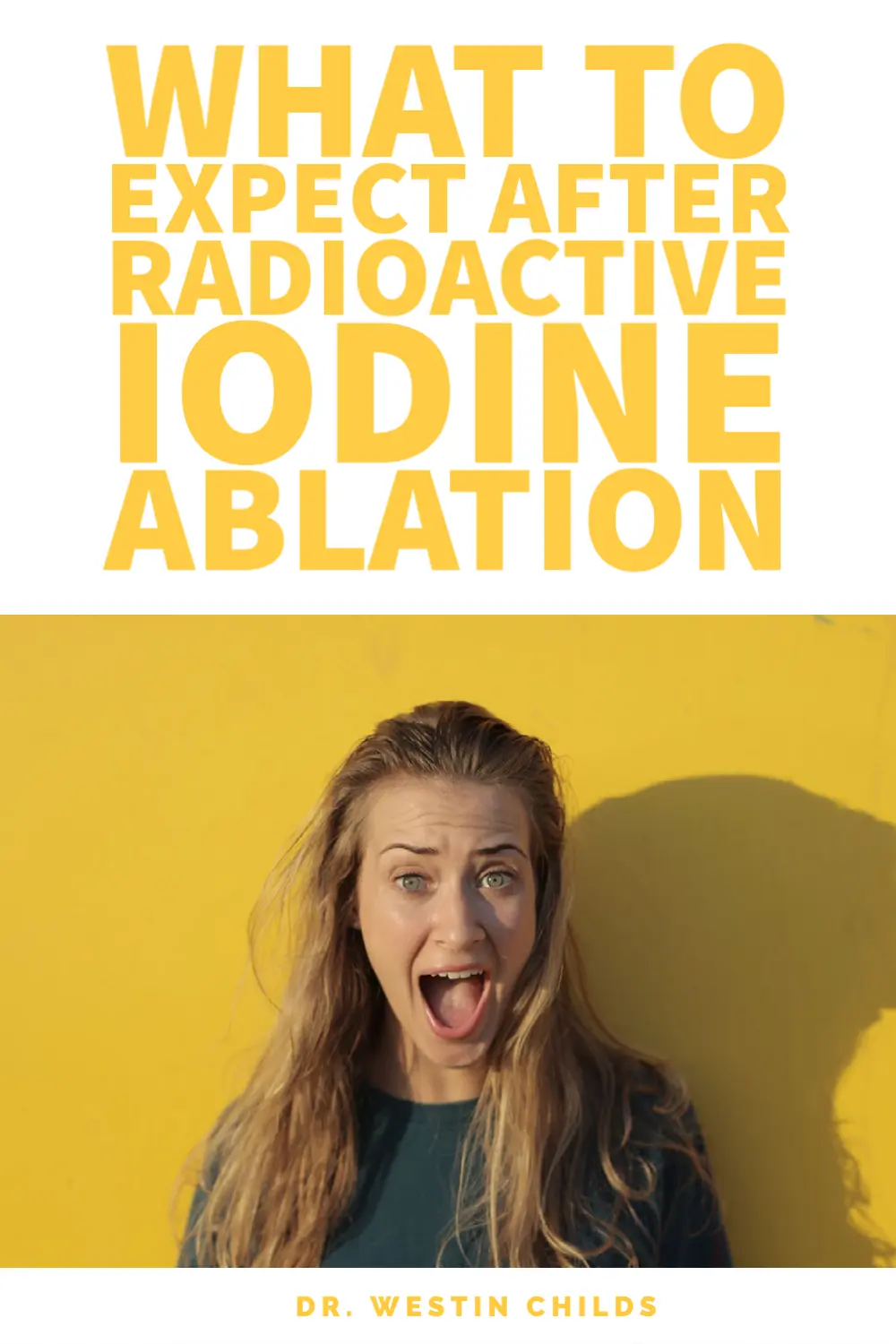
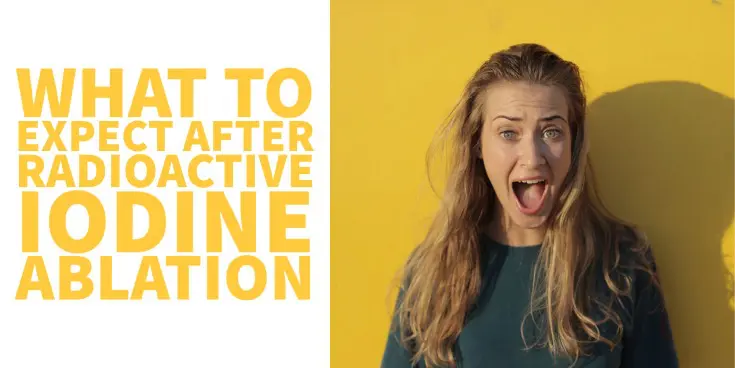
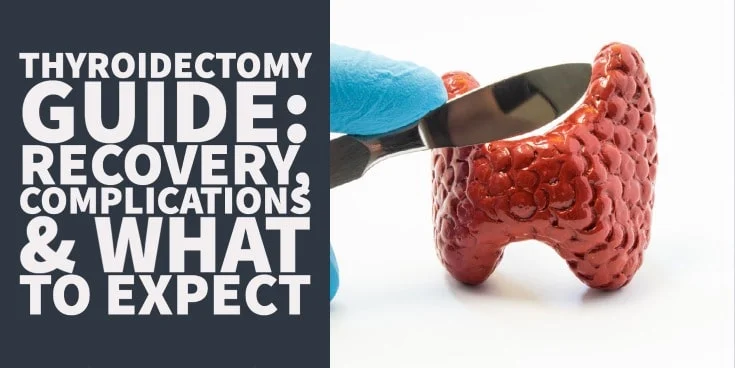
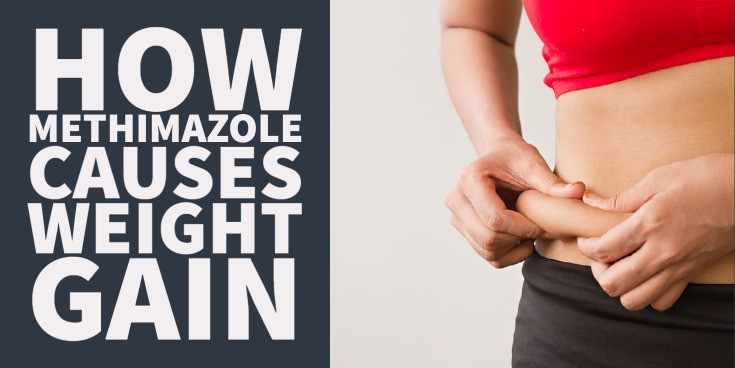
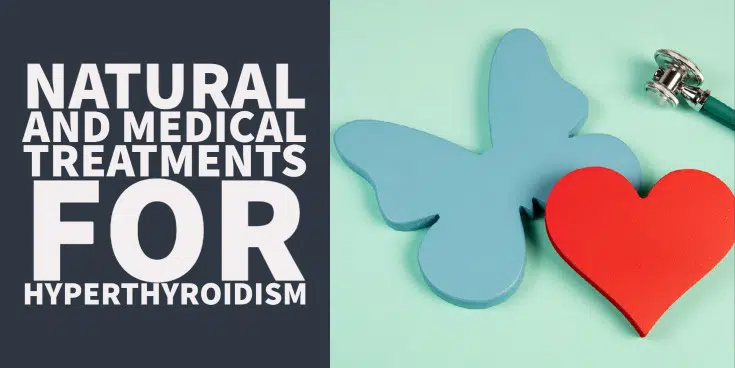
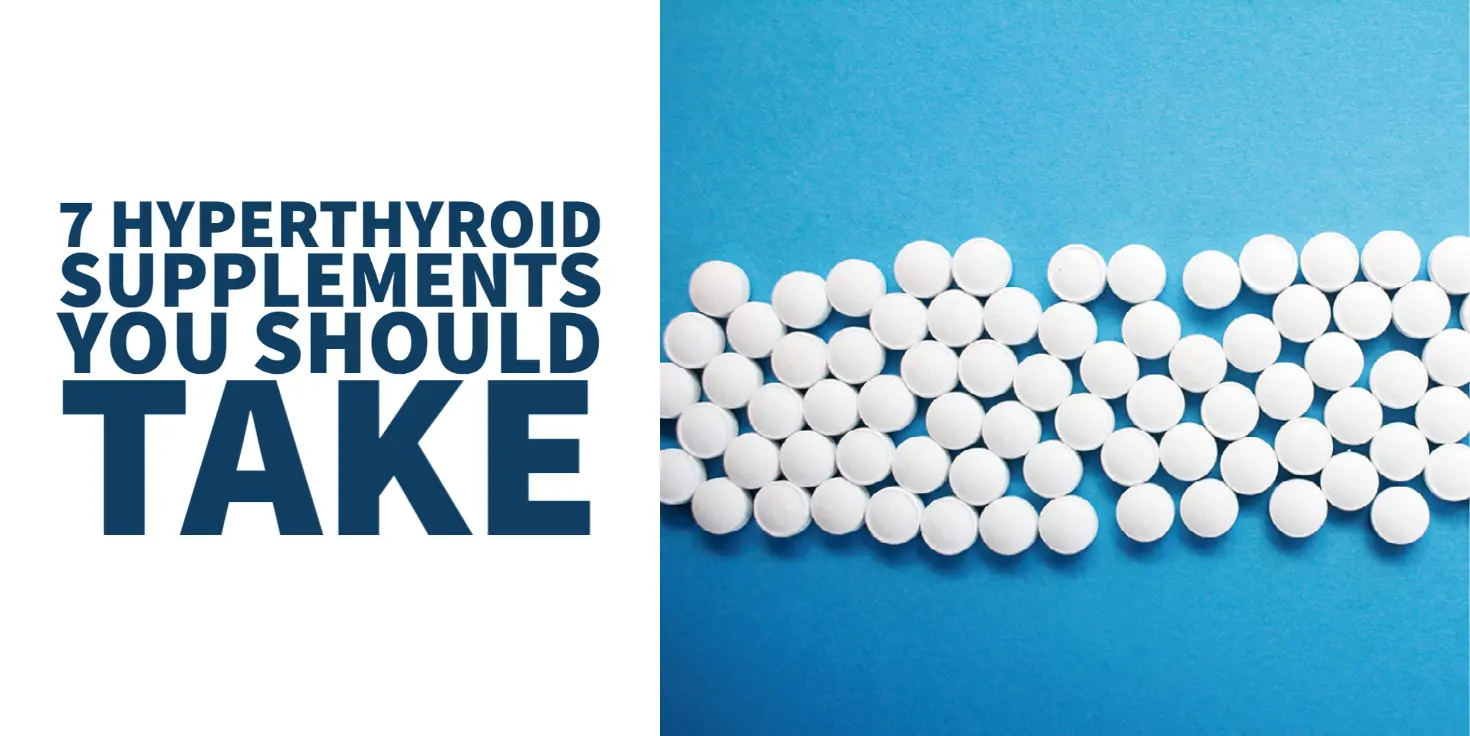
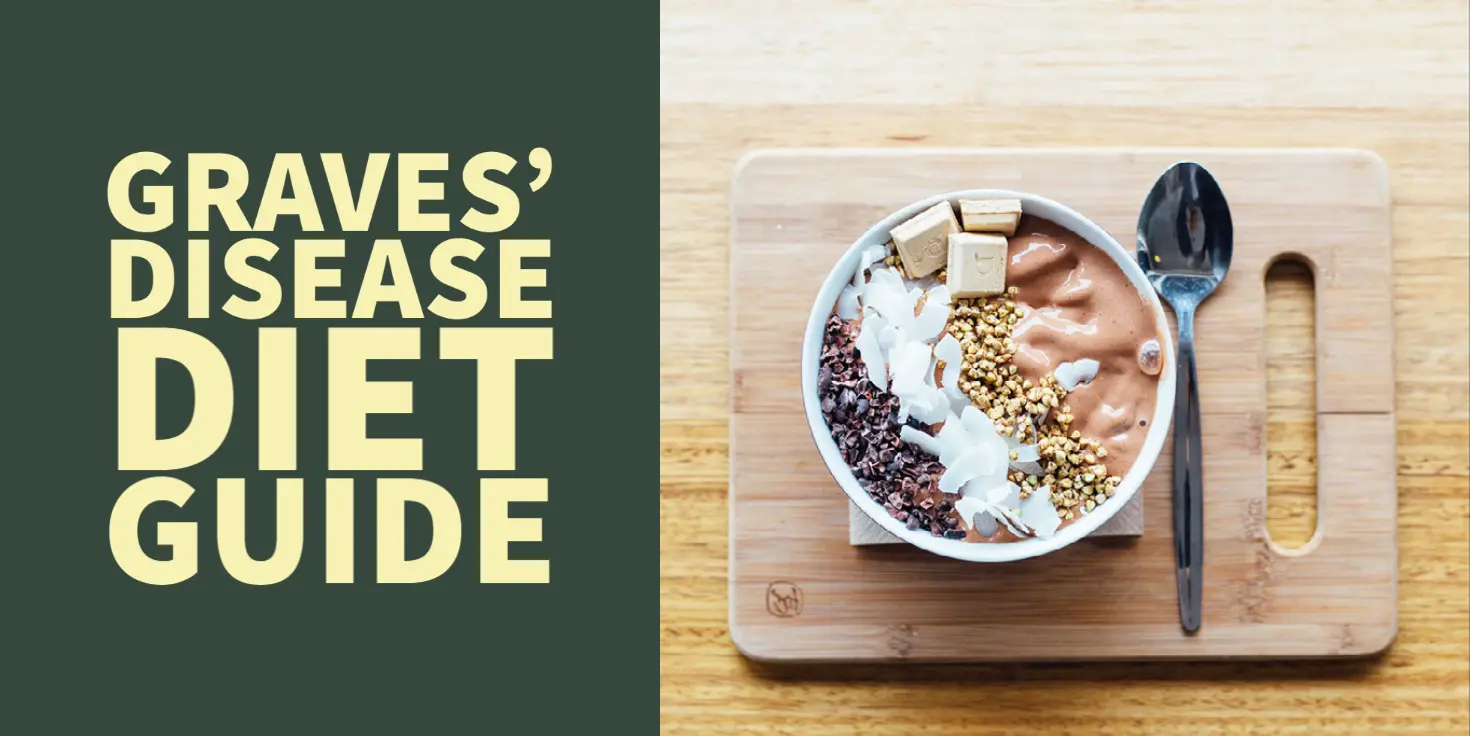
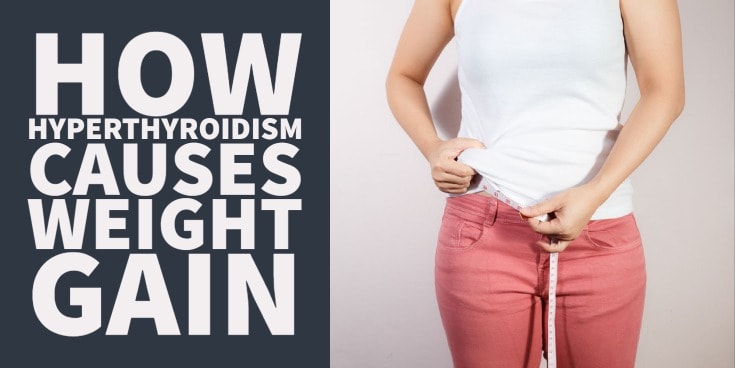

Hello, I had graves for years and ended with heart failure. the solution was RAI which I regret every day since then. I have transitioned over to hypothyroid and can NOT live like this and refuse to. Doctors don’t seem to care about the quality of life, I am at my wits end with it. It is so frustrating and I do not look or feel like myself anymore. I do not know what to do and have seen every doc that you can possibly think of in the entire state of Colorado including naturalists. Please help!
Hi Millie,
Sorry to hear about your struggle! I put together a resource here which may help you find the right type of doctor: https://www.restartmed.com/thyroid-doctor/
I would recommend you check out that link which explains the difference between how certain types of Doctors look at thyroid medication.
Dear Millie, so sorry to hear about your suffering. Please get yourself a copy of Anthony Williams’ book Thyroid healing. It will change your life for the better. Good luck & bless Koko
Thanks for this article.
I feel so sorry for all those that got RAI. I don’t know a lot about the causes of hyperthyroidism but I do believe that people who live in most of the world don’t receive that optimal amount of natural inorganic iodine and as a result have goiters, nodules, hypothyroidism, and mental retardation.
Hello, when I was 14 I had a routine physical and was told my urine sample was abnormal and it was likely that I had diabetes and to go to the hospital immediately. My family and I were shocked. I had been raised in an extremely healthy environment (raised pescetarian with a heavy emphasis on plant foods, always very active and always skinny naturally). After hours of tests, it was concluded that I had Graves’ disease and so the rollercoaster began (now nearly 11 years ago). I grew up in KY and so the number of pediatric endocrinologists were limited and of them, zero alternative or holistic practitioners. The time between taking beta-blockers and being advised to get RAI seemed to happen in the blink of an eye and seems like even more of a blur when I think back on it now. Unfortunately, neither myself or my parents had any idea what we were dealing with and what our other options were but had I known then what I know now, I would have never gone through with it. I distinctly remember being told by my doctor immediately after undergoing the RAI procedure that I would most likely gain weight and there was absolutely nothing I could do to stop it. Hearing that crushed me and was an extremely traumatic moment in my life. I wasn’t prepared for the journey ahead and happened to be going through puberty at the same time, causing a perfect storm of angst, low self-esteem, and triple the amount of normal weight gain at that time in a girls life.
I put on 41lbs (I was around 112lbs and rescheduled my heaviest at 153) in a little over a year and was a mess taking levothyroxine. I struggled the rest of my high school career to feel good physically and to feel good about myself. Never in my life had I been remotely overweight and I just couldn’t believe it. My face was so swollen and puffy. My doctor was conservative and unfeeling.
College was even worse. I moved to Minnesota and was forced to figure out my health without my parents help while trying to balance my rigorous academic workload and meet new friends. I was very angry and depressed and hated college the first two years. I felt foggy, heavy, and had little energy to get out of bed and deal with my challenging academics and was extremely lonely (and freezing in that cold bleak weather). Not to mention the myriad other secondary and tertiary autoimmune and hormone-related ailments I suffered from (scalp issues, acne, constipation, bloating). My first doctor I found was rigid and refused to prescribe me armour, which my mother had researched and suggested I try to get my doctor onboard. I went to a second doctor who was willing to put me on a conservative dose. I started to feel a little better but I mostly attribute that to going on Wellbutrin which helped me deal with my depression and get me out of bed every morning. The last 3 years of school were spent pleading with my doctor to bump up my dosage and her constant reluctance and push-back.
The Wellbutrin helped me have the energy to start going to the gym a little during school and I managed to lose a few pounds but it seemed like such a war to keep those off and I felt like I couldn’t eat anything so I yo-yo-ed a lot.
The summer after I graduated I moved to NYC and began to see some light at the end of the tunnel. I read the STTM blog and found a doctor recommendation and immediately made an appt a month or so after I moved. It seemed like my prayers had been answered, he titrated my dosage aggressively and I began to feel better. I think this up in dosage combined with my new love for exercise and the active lifestyle NYC requires at a minimum helped jumpstart my weight loss journey.
**sidenote: I was also diagnosed with PCOS 2 years ago and was out in Spironolactone to help but didn’t see improvement until I went on the lowest dose of Microgestin birth control
Over the course of the last 3 years I lost 20lbs and up until VERY recently (4 weeks ago) managed to keep it off and weigh in at 130. I still want to lose more weight but know that I will have to do a lot to get to 125lbs. The most important thing is I feel so much better, clearer, lighter, happier, NORMALish again!
It seemed like I finally figured out what my body needed in order to lose weight, keep it off, and feel healthy and energetic and it wasn’t until about 4 weeks ago that one day I stepped on my scale and literally out of nowhere gained 8lbs. I was shocked, normally if I have a bad salt day I might weigh anywhere from 2-5lbs more but never 8. I tried to maintain calm and the next week proceeded to do what I always do to help flush some of that excess water weight. In the past, that is all it has ever taken but it is 4 weeks later and I still haven’t seen a single change in the scale. I feel a little depressed and I know to many 8lbs sounds like nothing but for me it signifies a lot more and brings me back to a dark place where I feel like I can’t control my weight despite eating little and being very active.
I am very confused about how all of this happened and can only be lead to believe it is my thyroid acting out, but I just have never experienced that rapid of a weight gain in my life! Dr. Childs, I plan to see my doctor next week to discuss my situation but I am curious to see if you have ever seen something like this happen? Could it be that suddenly my dosage is insufficient and like that I put on 8lbs seemingly overnight? I am just so confused and frightened due to my traumatic experiences with weight in the past and don’t want to have to deal with that agony again. Could you please offer any insight if this sounds familiar to you? Thank you
I was diagnosed with Graves Disease 24 years ago. Initially, I was treated with Tapazolfor the first five years but had to eventually make a more permanent course of treatment, so I chose RAI.
After treatment, it took 3 additional years to “go under!” Since that time, I have been on 100mcg of Synthroid (16 years). I actually felt pretty good for the most part, I have had some unexplained anxiety, cracked heels, acid reflux but my energy levels are great. My biggest complaint is my weight! I was 133 lbs before I became toxic, I dropped down to 112 lbs. when I was diagnosed with Graves, but slowly gained with every decade! I am now 62 yo post menopausal woman I keep cleaning up my diet, exercising, eating less and less and I cannot seem to lose a pound! I now weigh 159 lbs. I had my first slightly elevated glucose 108 and I fear what lies ahead for my health?
Hi Debra,
This article explains why many patients with hyperthyroidism deal with weight gain and other symptoms of hypothyroidism. This post should help answer some of your questions and get you started on the right track! https://www.restartmed.com/hyperthyroidism-weight-gain/
Dr Childs,
What of your supplements you recommend for patients who did the RAI & now have hyperthyroidism?
Hi Yvette,
T3 conversion booster + Thyroid Adrenal reset complex + Ultrabiotic tend to work great for most people.
Hi Dr. Childs, I had thyroidectomy in 2014 and RAI in 2016 due to thyroid cancer. Since I have gained 20lbs and I have developed digestive issues, chronic diarrhea for the last two years. My suspicion is that the RAI killed off good gut bacteria and that my body is not properly absorbing the medication. Could this be, every doctor I have talked to said that RAI can’t do that? I also am still struggling to feel better chronic fatigue and muscle pain. My endocrinologist said it’s not thyroid related to back to general to be tested for sleep apnea.
Hi Jennifer,
RAI shouldn’t kill off your gut bacteria but your symptoms may certainly be related to your thyroid medication and your dose being inadequate.
I was diagnosed with thyroid cancer 10 years ago. Had thyroid removed as it had spread to lymph system (13 of 16 nodes).
Had high dose RAI followed by two lower dose treatments over four years. For the last seven years or so I have consistently been getting flu like symptoms that wipe me out anywhere from 2 to 4 days. At first it was about once a month but this year it has been every two to three weeks. I work out a lot and am in really good shape. I have asked my doctors many times what I can do to fight this. They just tell me to keep doing what I’m doing. This obviously isnt working. I am looking for any suggestions. THANK YOU
I was diagnosed with Hyperthyroid. I had taken Radioactive Iodine in 2018 June, I have a question/doubt:
How far it effects/side effects your sexual life.
I was very active in my sexual life, but after Radioactive Iodine I am not getting that Urge or that interest. 🙂 please help and update.
Hi Moorza,
Your libido is most likely related to your thyroid function and other sex hormones. If you are taking thyroid medication then you probably need to alter your dose to get that improvement.
I am post RAI treatment for 18 years. I am left with a red rash on my neck that worsens in the sun. Could this be radiation burn? I was dosed twice with RAI as the hospital gave me the wrong dosage the first time. I would like to know if thyroxine is the only replacement therapy post RAI patients need?
So it sounds like it’s not the RAI per se that creates the issue with weight gain. It’s the fact that you have zero thyroid left, and REALLY it’s the fact that endocrinologists, for the most part, remain rigid and deaf to the distress of their (mostly female) patients.
I’ve been diagnosed with thyroid cancer, a type that can spread through blood, and am having a total thyroidectomy in two weeks. Right now my plan is to a) not hang on to my doc’s every word as if it were gospel (regarding Synthroid or “just take this one pill and you’ll be fine” mentality), b) work with my functional med/naturopath providers to FULLY address assessing ALL hormone levels/balance, especially T3, and c) insist on really solid evidence and a 2nd opinion re: post-surgery treatment and need for radioactive iodine.
Hi Diane,
Yep! Spot on with your analysis. I think that’s a huge part of it but you should also realize that supplementing with thyroid hormone by mouth will also never be as good as thyroid hormone production from a healthy thyroid gland.
Had radioactive thyroid treatment 5weeks ago, felt great first 8-10 days, now am feeling very low, tearful, bloated stomach and finding it hard to go toilet?
Hi Deborah,
Those are classic hypothyroid symptoms and probably indicate that your dose is off.
Doctor: Thanks for the many articles you provide explaining the hidden aspects of the thyroid gland.
I had/have Graves some 40 years ago and did the RAI. It was so successful that I had normal thyroid function for 25 years w/o levothyroxin. Now at a healthy 75 ( no weight problems) I guess one could just call me lucky—-as w/o treatment–it was a death sentence—-heart attack or stroke.
Hi John,
That’s great! Glad you were able to find what works for you.
I was diagnosed with hyperthyroidism and graves disease in August 2020. I had RAI treatment that same month. I was told I would feel better in a couple of months and its been a nightmare since my journey began. My thyroid wasn’t completely destroyed however my T4 and T3 were low my TSH was not as of Oct. 2020. By November 2020, I started per my endocrinologist levothyroxine 50 mcg, I felt worse very fatigued, although not “supposedly” a side effect it made me like a zombie, I’ve just wanted to sleep. In just a month of taking levothyroxine I’ve lost 40-50% of my hair, I feel horrible-exhaustion, fatigued, moody, increased migraines, weight gain, etc. My levothyroxine was increased to 88 mcg and the hair loss has tripled, as have most of the above side effects. Labs were rerun, claimed they are normal, but I feel anything but normal. Taking levothyroxine at 88mcg has also increased my anxiety, extremely moody, and often angry. Now I’m told its all in my head. I literally have bald spots now. When I asked if my T4 was possibly not converting to T3- the dr said he’s the expert, I’m in normal range, suggested an array of other specialist dermatologist, psychiatrist, and even smoking weed to calm the anxiety. I know I haven’t lived with this for 20 years or been diagnosed that long, but I feel like I’m going crazy because not only will my endocrinologist not listen neither will my primary dr. I know you don’t give specific medical advice, but any suggestions? In the state I’m currently in, healthcare sucks, you should know because many travel to AZ, TX, CO and other states for quality health care as NM isn’t a place for healthcare with a serious condition. Too bad I didn’t realize this before moving here. The point is I’ve hit my limit trying to find help here. I desperately need help in feeling better. Any suggestions would be awesome in the meantime I will continue watching your videos and reading your blog. Thanks- Christi Thompson
Hi, I had thyroid ablation about 10 years ago. I am now feeling no energy, no appetite, don’t want to go out and see people, tired, cold, I could go on and on. My TSH checks out ok according to the doctor. I am 85 and still want to be active. My Cardioligist and primary physician both think it isn’t my thryroid. I have never taken any thing for my thyroid after the ablation. Should I see a Endigrinoligist or leave it alone. I lost my husband 3 years ago and know that grieve can cause some of it.
Hi Shirley,
It’s hard to know if your thyroid is the main problem or not given your history and age but I would still get a complete thyroid lab panel at the very least to see how you compare to the optimal thyroid ranges listed here: https://www.restartmed.com/normal-thyroid-levels/
I had a thyroidectomy in 2000 and then Radated Idioned treatment. My weight is horrible as well as chronic fatigue to this day. My question is can the treatment affect dental health?
Hi Joyce,
There is a connection between dry mouth and some thyroid disease like Hashimoto’s. It also seems that there may be a connection between salivary function and thyroid function.
I have been dealing with thyroid problems since late 1970’s but wasn’t diagnosed until the mid 1990’s. I developed a goiter which my Aunt noticed and my gynecologist confirmed so started seeing a endocrinologist. Many problems getting myself out of the crazy’s. Bless my husband’s heart and patience. I can’t remember what year I had my thyroid ablated but it must have been 2001, 2 or 3. Weight gain is my biggest problem and unless I am virtually starving myself I don’t lose weight. Now I weigh 202 and it’s a huge problem for me because I have COPD and the weight adds tremendously to my breathing difficulties. I’m 78 years old. Other than the fact that I am obese I have finally attained mental health. I take many supplements which I swear has made a big improvement. I would like my doctor to prescribe T3 in a low dose but she refuses and blames my eating and low exercise for weight gain. I admit that I used to walk 3-5 miles a day for 6 days per week until I hurt my knee then was diagnosed with COPD. I take 50mcg Levothyroxine. Also on buPROPion HCL SR 150mg three times a day, Fluoxetine HCL 40mg once a day plus allergy meds, cholesterol meds and high blood pressure meds. & B12 shots once a month. Supplements I take: CoQ10, Tyrosine, Taurine, Zinc, Selenium, Iron, Magnesium, Biotin, D3, A, chromium, milk thistle, Mullen, Essential Enzymes, Krill, PrimRose Oil, and Ashwagandha.
It’s said that repeatedly taking milk thistle might block thyroid absorption in the cell.
Hi Lisa,
There’s one study which shows that an active ingredient may block thyroid function, but that particular ingredient (silychristin) is found in very small amounts and is not clinically relevant. It’s fine to take milk thistle if you have a thyroid problem.
Expect the government after telling all the doctors to recommend ablation, are now telling doctors they can’t prescribe Armour Thyroid. The only patient on Armour Thyroid is one that already tried synthetic thyroid medicine. So basically the are sentencing all these patients to death. When I go, I won’t be going alone. Really has enough of the BS here in the USA.
My Endocrinologist says my thyroglobulin levels are a tiny bit high & wants me to do a high dose RAI treatment. I’m a 75 year old woman & have been researching this. I really don’t want to do this. My thyroid was removed in 2001 & have hashimoto disease. I’m concerned of the side effects.
Hi Kathy,
Given what you shared, I would strongly consider a second opinion before high dose RAI. High dose RAI is usually reserved for confirmed or strongly suspected thyroid cancer or difficult hyperthyroidism. If your thyroid was removed for noncancer reasons and your thyroglobulin is only slightly elevated, there are several checks to do first.
Helpful questions for your endocrinologist or a second specialist to address:
Was there any cancer on your original 2001 pathology report?
What is the trend of your thyroglobulin over time, rising or stable?
Do you have anti-thyroglobulin antibodies that could make the result unreliable?
What was your TSH when the test was drawn, suppressed or elevated?
Has a high-quality neck ultrasound been done recently?
Are there noncancer reasons for a mild thyroglobulin bump, such as residual benign tissue or assay variability?
What are the expected benefits versus risks of RAI at your age, including dry mouth, taste changes, salivary issues, and other side effects?
If they are unwilling or unable to answer these questions, that would be considered a bad sign.